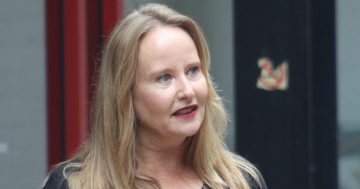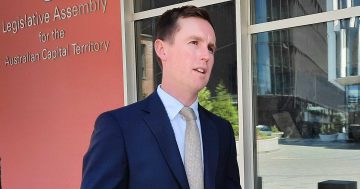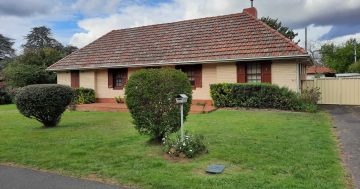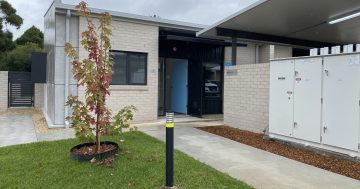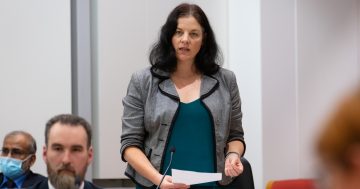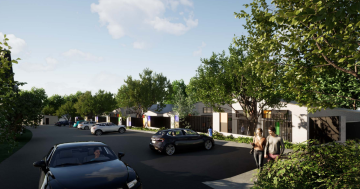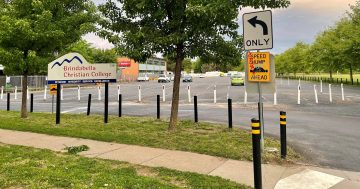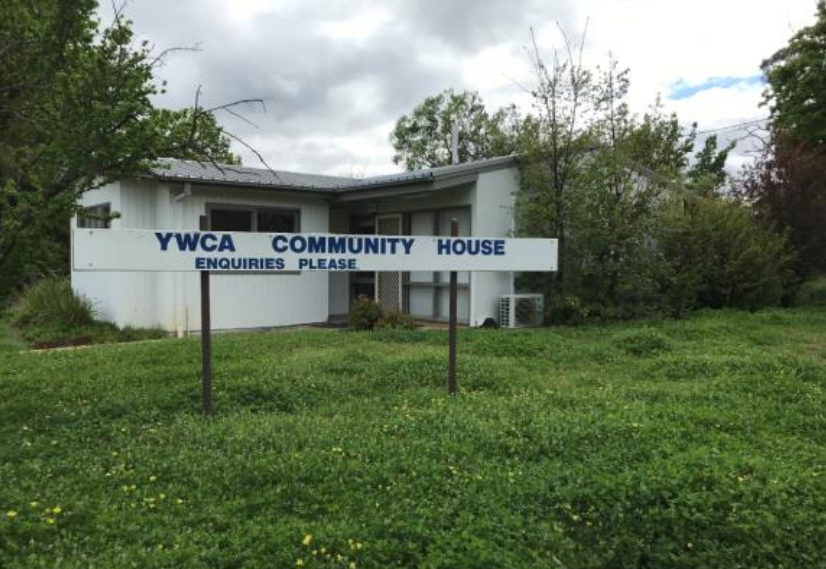
The YWCA land where nine units will be built to house vulnerable women. Photo: File.
A controversial supportive housing proposal in Ainslie has been waved through by Planning and Land Management Minister Mick Gentleman, citing the need to support housing for vulnerable people.
YWCA Canberra had proposed nine supported housing units on land it owns in Rutherford Crescent to accommodate vulnerable women.
It was YWCA’s second attempt at the housing project after its first approved development application for 10 units ended up being canned by the ACT Civil and Administrative Tribunal last year after an appeal from the Ainslie Residents Association.
Mr Gentleman used his call-in powers to approve the proposal, reinforcing the government’s backing for housing for vulnerable people.
In 2020, Mr Gentleman also used his call-in powers to approve Common Ground’s housing complex in Dickson.
Mr Gentleman said the planning system was an area of government that can and should be used to facilitate housing options for vulnerable members of our community.
“The ACT Government is committed to secure housing options for households of all incomes. This development offers a practical and lasting way to support those who need a hand,” Mr Gentleman said.
Asked if the decision meant he could also overrule objections against other supportive housing projects, Mr Gentleman said that he exercised his call-in powers on a case-by-case basis when the project offered a “substantial public benefit”.
“I believe that the YWCA project stands to provide substantial public benefit, as did the Canberra Hospital Expansion and Common Ground projects,” Mr Gentleman said.
“Projects subject to a call-in must comply with the Territory Plan, which the YWCA project does. There is no ability to bypass the Territory Plan when a project is called in.”
Under the new planning system, the Minister is set to cede the call-in powers to the Chief Planner.
YWCA Canberra CEO Frances Crimmins said the organisation was excited to progress to the next stage of development, saying units would support women at risk of homelessness or who are in housing crisis.
“This project has been on the cards since 2019, so we’re thrilled at the Minister’s decision to call it in, meaning we can progress to building plans and hopefully be able to get our first tenants in within the next 12-18 months,” Ms Crimmins said.
“The call-in powers exist to ensure that important developments that have a clear benefit to the community are able to proceed in a timely manner.
“There is an urgent need to increase the supply of housing in Canberra, particularly to lower-income cohorts who are facing retirement poverty or attempting to rebuild their lives after violence. This call-in recognises the significance of these pressures in the community.”
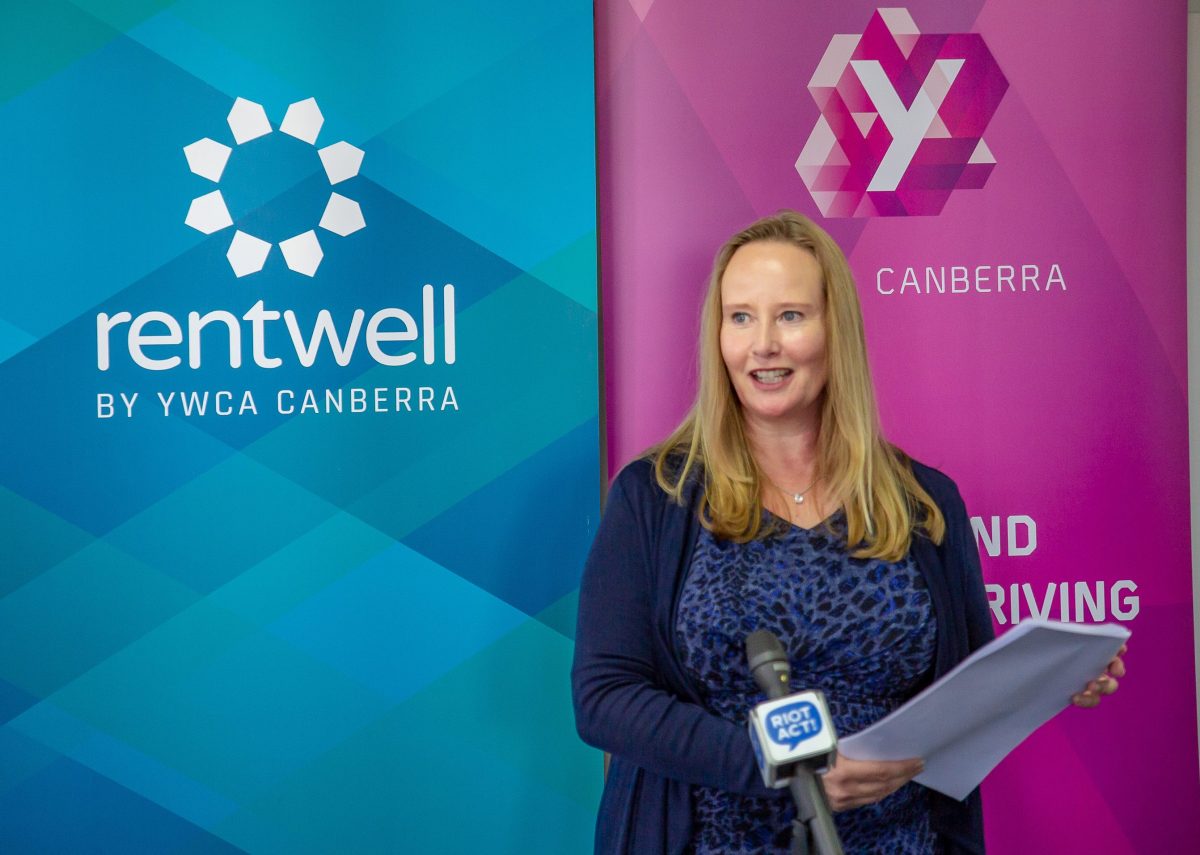
YWCA Canberra CEO Frances Crimmins: “The call-in powers exist to ensure that important developments that have a clear benefit to the community are able to proceed.” Photo: Region Media.
But Ainslie Residents Association Chair Ian Hubbard called the surprise decision an attack on community engagement and third-party appeals.
“Planning outcomes will be the poorer for this,” he said. “ACAT found a lot of issues with this multi-unit development, finding it too dense for the site.
“The new proposal provides marginal change. The Minister has blocked the avenue for the community to appeal despite the majority of funds for the development, construction and operations being provided by the public.
“This is a bad planning decision that uses public money on a cheap community facilities site to produce a poor residential outcome. This proposal has lacked transparency and scrutiny from the beginning and now the Minister closes the door on local residents.”
Mr Hubbard said the residents had been vilified for their objections to the project and wrongly accused of gaming the system.
YWCA Canberra will finance the build through a combination of its own funds, donations and a $1.2 million grant from the Federal Government’s Safer Communities program. It also received an ACT Government grant of $125,000 in 2019 to assist with the initial planning process.
The Ainslie Residents Association argued in ACAT that the site was inappropriate for such a development and would impact neighbouring Bill Pye Park.
ACAT agreed, finding that the proposal did not comply with a swag of planning rules and that the site was too small for a 10-unit supportive housing development.
It found that the proposal would impact significant trees bordering the site, the proposed fencing was not compliant and would not give residents sufficient privacy, setbacks were too small, there was insufficient outside space, and the units would not receive adequate sunshine.
There was also not enough room for parking, which needed to include space for visitors because the curve of the street meant offsite parking was unsafe.
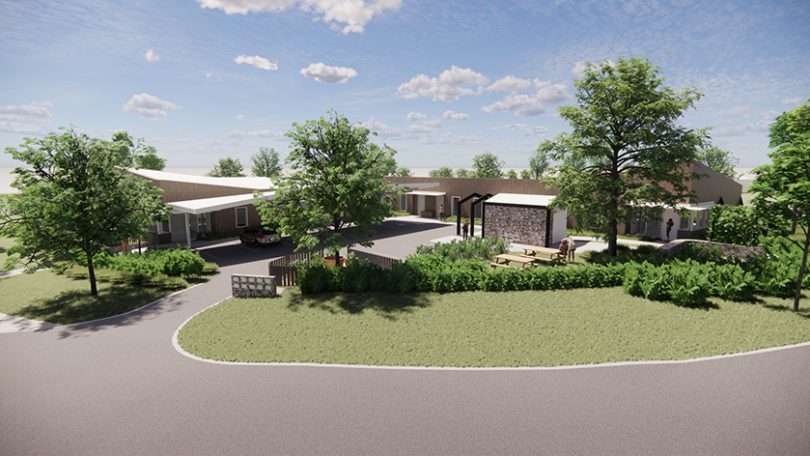
Artist’s impression of the original proposal. Image: AMC.
ACAT further found that the project would impact the desired character of the area.
YWCA revised its design and lodged a new development application for nine units in February.
“After careful consideration of the concerns raised by members of the community, I have used my call-in powers to approve this project and enable construction of these supported housing units to begin as soon as possible,” Mr Gentleman said.
“We have imposed a number of conditions on the development, including measures to safeguard protected trees on the site and the adjacent park, which were among the neighbours’ concerns.”
Ms Crimmins said the development had been opposed by a small group of local residents, causing a costly delay to the project.
She said not all Ainslie residents were opposed to the development, providing comments from some.
Resident Meridith Edwards said she was delighted the project was to proceed at last.
“Its residents will have affordable and safe accommodation which is close to transport, medical facilities and shops,” she said.
Another resident, Tony Adams, said that he and his family were pleased to see it proceed.
“The planning approval process has ensured that all local views have had a very good hearing and the right decision has now been made.”
Mr Gentleman’s call-in is now the end of the matter as it cannot be reviewed by a third party in ACAT.












